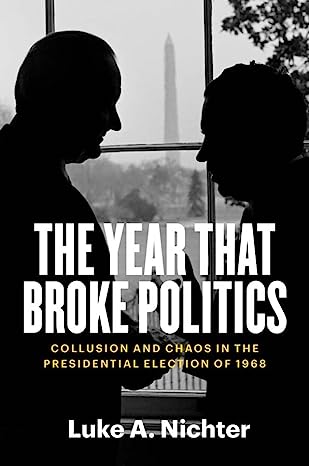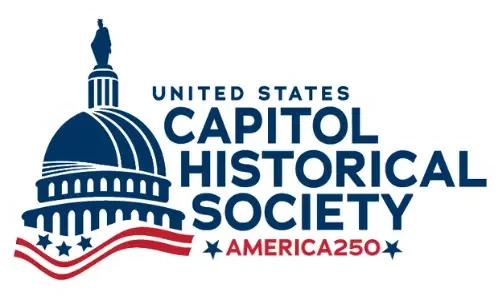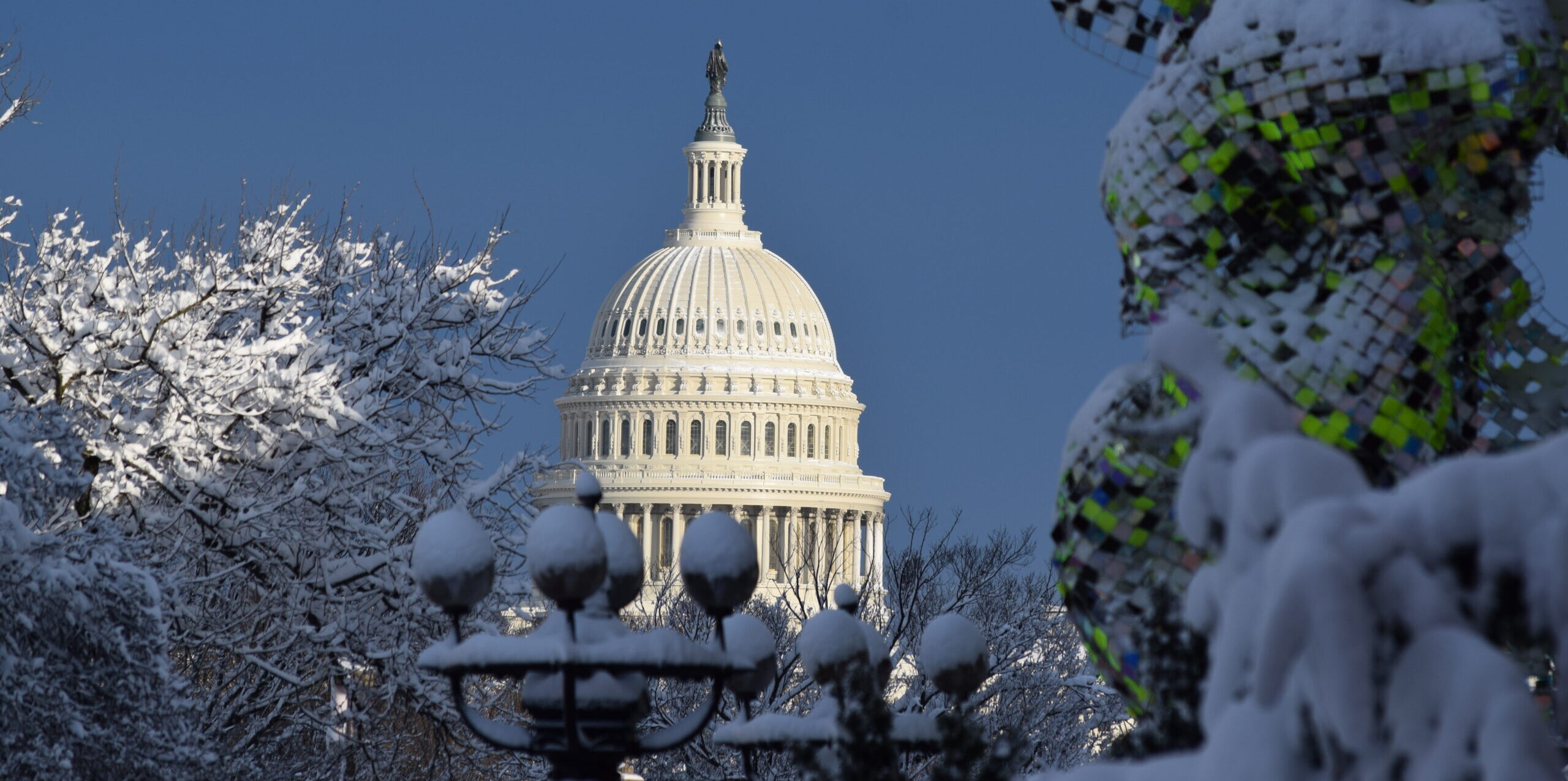We hosted an exciting webinar with Dr. Luke A. Nichter, a New York Times bestselling author, Professor of History and James H. Cavanaugh Endowed Chair in Presidential Studies at Chapman University. Together, we explored the 1968 presidential race that occurred during a time of bitter division in the United States, marked by the tragic assassinations of Martin Luther King Jr. and Robert F. Kennedy and characterized by contentious debates on issues such as the Vietnam War, civil rights, and increasing crime rates.
During our webinar, Dr. Nichter discussed his latest book, The Year That Broke Politics: Collusion and Chaos in the Presidential Election of 1968 (Yale University Press), which reshapes our understanding of a critical moment in twentieth-century American history. It is the first rigorously researched historical account of the most controversial election in modern U.S. history to have cooperation from all four major sides–Lyndon Johnson, Hubert Humphrey, Richard Nixon, and George Wallace.
Dr. Nichter conducted approximately 85 interviews with family members and former staffers, in addition to extensive archival research and access to new evidence that dramatically changes our understanding of the election. This amazing work received a National Endowment for the Humanities Fellowship and provides an eye-opening account of the political calculations and maneuvering that decided this fiercely fought election.

Dr. Luke A. Nichter is a Professor of History and the James H. Cavanaugh Endowed Chair in Presidential Studies at Chapman University. He has been a Visiting Fellow at the Norwegian Nobel Institute, an Andrew W. Mellon Fellow at the Massachusetts Historical Society, a Visiting Scholar at the University of Michigan’s Eisenberg Institute for Historical Studies, a Senior Visiting Research Fellow at the University of Oxford’s Rothermere American Institute, and a Hansard Research Scholar at the London School of Economics.
His areas of expertise include the Cold War, the modern presidency, and U.S. political and diplomatic history, with a particular focus on the “long 1960s” spanning from John F. Kennedy to Watergate. Dr. Nichter is recognized as a leading authority on the confidential White House recordings of Franklin D. Roosevelt through Richard Nixon and wrote an authoritative account of their taping systems commissioned by the White House Historical Association.
He is a New York Times bestselling author and/or editor of six books, including The Last Brahmin: Henry Cabot Lodge Jr. and the Making of the Cold War (Yale University Press), Richard Nixon and Europe: The Reshaping of the Postwar Atlantic World (Cambridge University Press), and, with Douglas Brinkley, The Nixon Tapes: 1971-1972 (Houghton Mifflin Harcourt) and (Houghton Mifflin Harcourt). His books on the Nixon tapes won the 2017 Arthur S. Link – Warren F. Kuehl Prize for Documentary Editing by the Society for Historians of American Foreign Relations
Dr. Nichter is a former founding Executive Producer of C-SPAN’s American History TV, launched in January 2011 in 41 million homes. From August 2020 to April 2023, he was appointed to the White House’s Advisory Council on Historic Preservation – transforming the role of the federal government from destroyer to protector of historic, cultural, and tribal sites.

The 1968 presidential race was a contentious battle between vice president Hubert Humphrey, Republican Richard Nixon, and former Alabama Governor George Wallace. The United States was reeling from the assassinations of Martin Luther King, Jr., and Robert F. Kennedy and was bitterly divided on the Vietnam War and domestic issues, including civil rights and rising crime. Drawing on previously unexamined archives and numerous interviews, Luke A. Nichter upends the conventional understanding of the campaign.
Nichter chronicles how the evangelist Billy Graham met with Johnson after the president’s attempt to reenter the race was stymied by his own party, and offered him a deal: Nixon, if elected, would continue Johnson’s Vietnam War policy and also not oppose his Great Society, if Johnson would soften his support for Humphrey. Johnson agreed.








